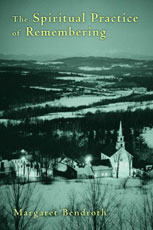"For all our worries about divine providence and God's will, the really hard part about history is accepting the humanness of the past and its people. Just as there are no one-dimensional heroes and villains in real life today, there were none 200 or 2,000 years ago either. All of us live somewhere between fear and hope, sharing the precariousness of life on planet earth. But we learn to understand our situation within different cultural ground rules and different physical limits.
"Our ancestors are on the one hand terribly alien to us, yet we are also profoundly connected to them. They confront us with the full span of human diversity, in beautiful, frustrating, and challenging ways. We do not need to excuse them for their various sins and omissions, treating them as if they came from some wildly exotic civilization. We have the right — and the responsibility — to disagree and complain and rail against them within the framework of our common tradition, that extended argument constantly unfolding across both space and time. Even though they do not literally talk back, it is still possible to learn to hear their voices clearly.
"Without our ancestors, we can't really know what it is to be human. Some linguists argue that the Latin word for human (humanitas) is related to the word for burying (humando). In other words, it's not a stretch to say that to be human is to bury our dead — and, even more important, to remember where they are. Archaeological evidence suggests that the earliest hearths and the earliest homes were built over those ancient graves.
"Humanitas is also related to humus: in other words, being human means possessing a deep, rich soil, layers and layers of all that has gone on before we were born. This is the kind of soil that makes life out of dead things, that connects them in a cycle of fertility and growth. We are, after all, born of the dead, taking over their physical space, their languages, and their ideas — and we are the ones who will hand these over to our unborn. We the living are a ligament between the generations, the only connection between what was long ago and what is yet to come."
